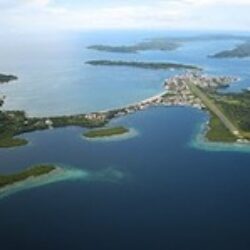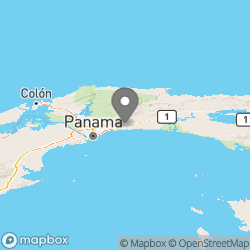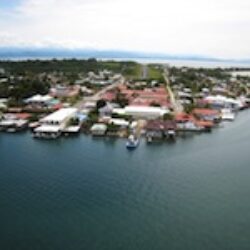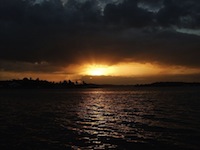Bocas del Toro, Panama


What It Is Like to Retire in Bocas del toro
Bocas del Toro is a Province of Panama, located on the North Caribbean coast and composed of the mainland and nine islands. It is a popular year-round tourist destination and with some of the largest rainforests in Central America, it is considered one of the most biologically diverse places on earth. History has it Christopher Columbus first discovered the islands in 1502, and was so enamored with them he named Isla Colon and Isla Cristobal after himself. Isla Colon is 9 miles off of the mainland, and is a popular island for visitors. The airport is also located there, and the main source of income for Isla Colon is tourism. The entire archipelago lies within a tropical rainforest ecosystem which results with beautiful floral and fauna throughout. Bocas del Toro has an interesting history that involves pirates and hidden treasures, Spanish militia and disease, aristocrats in the 19th century, and the development of the province’s banana industry. Today, there are vast banana plantations referred to as “the green gold of Central America” as Bocas Del Toro grows and exports 750,000,000 tons of bananas annually. Picture of aerial view of Bocas Del Toro and picture of City of Isla Colon courtesy of Wikipedia and Panapro; picture of Sunset in Bocas del Toro courtesy of Wikipedia and The Wolf, Licensed under CC BY-SA 3.0/

Where to Retire in Bocas del toro and Home Prices
Colorful homes built on stilts that sit out in the water are common in Bocas del Toro, and a Caribbean colonial style is required of new construction. Home prices along with lot prices vary according to the islands, and range from under $100,000 to the millions. Not all of the islands in the archipelago are developed with water treatment, electricity and paved roads. The most popular is Isla Colon, where many expats live and have businesses.
What Is Special about Bocas del toro
Bocas del Toro offers a relaxed lifestyle along with beautiful beaches; boating, kayaking, and reefs for diving and snorkeling; rainforests with many species of tropical flora and fauna; a National Marine Park that has become Panama's top ecotourism destination.
What Is Not Special about Bocas del toro
Because it is a rainforest, Bocas del Toro receives a copious amount of rain, and it does get humid; the province lacks some basic infrastructure concerning water filtration, electricity, and roadways; there is a public health clinic, but facilities are limited.

Who Will Like Retirement in Bocas del toro
Retirees who want a tropical lifestyle and enjoy the beach, boating, and the outdoors would enjoy Bocas del Toro.
Local Economy Is Driven by
Tourism
Climate and Physical Environment
The entire archipelago lies in a tropical rainforest and receives an average of 130 inches of rain annually. There is no predictable dry season, as it rains over 300 days a year, mainly just for a short time each day, and the rain is considered gentle and warm for the most part. The temperature is consistent all year, averaging a perfect 80 degrees.
Restaurants & Cultural Scene
Bocas del Toro is a tapestry of cultures including Spanish, Indian, Europeans, South American and North American. The indigenous people of Bocas del Toro are farmers and fishermen who share their traditions and customs with visitors, along with selling their crafts. As a tourist destination, Bocas del Toro’s blue water and white beaches offer surfing, diving, and snorkeling, boating and kayaking. The province contains two national parks: La Amistad International park and Isla Bastimentos National Marine Park, which is the area’s largest attraction and covers over 30,000 acres. The park is also a protected area for endangered Manatee and a sightseeing spot for watching dolphins and sea turtles. The Smithsonian Tropical Research Institute operates a research station on Colon Island.
Crime
The crime rate is low in Bocas del Toro.
Medical facilities
Health care is available, but doctors and services are limited.
Transportation
Bocas del Toro is accessible by air or boat, and it does have its own airport. Boat service and water taxies are provided by different companies to various islands. A car is not considered a necessity as the island of Isla Colon is very walkable, and some of the islands do not have roads. Most residents do however, own a boat.


Comments on "Bocas del Toro"